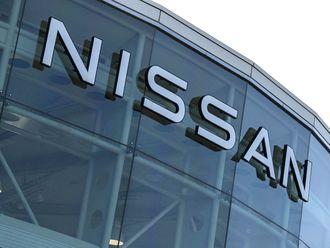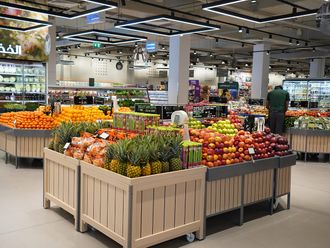Dubai: It’s not just the menus that keep changing at Dubai’s F&B outlets — even the operators are. The ranks of F&B businesses — especially those catering to the fast-service and mid-tier categories — being forced out by a weak marketplace as well as changing consumer tastes are growing with each quarter, according to industry sources.
But as older operators head for the exit, new ones are only too eager to get in — and in most cases at the same premises. “As a process of “gentrification” takes place in each residential community, some of the older restaurants are unable to compete, thereby allowing well-capitalised players to enter and take advantage of lower prices of acquisition,” said Abdul Hakeem Kamkar, Director at Al Danah Capital, which operates the BigBen, Bunchum and Arrions outlets.
“This is a process that has played out in International City, Discovery Gardens and is currently playing out in JLT, Jumeirah Village and Motor City.”
Going by the sheer number of new international franchises that have come in as well as concepts launched by home-grown startups, Dubai’s F&B space has had three outstanding years. It has been helped by the availability of new locations, most of which have been in the upscale parts of town.
Incidentally, the restaurants that are shutting down tend to have a profile at the lower end of the price/positioning spectrum. “This manifests itself in the form of a proliferation of restaurants that are quite unable to distinguish between themselves either in the cuisine or in terms of price,” said Kamkar.
“This has allowed for a high number of acquisition opportunities - of the premises rather than the concept, primarily because the concepts for the most part are still charging substantial premiums. We expect that as competition intensifies, a number of well-positioned concepts could be ripe for acquisition. And such deals will increase in the medium term.”
The landlords of these premises are just as willing to take on a new tenant at the earliest opportunity rather than see them remain vacant for a long time. In most cases, they may also not be in a position to charge a higher rent for the incoming tenant. There could be some mark-up in the ‘key money’ demands, but not to the extent that the prospective F&B operator will find insurmountable.
“Acquisitions can be broken down into two categories : where existing brands are acquired with a capital infusion or [where] the premises are acquired but the concept is rebranded,” said Kamkar. “Al Danah Capital has thus far adopted the latter approach, whereby the premises and equipment are acquired at or near replacement value, and a rebranding takes place at great locations with legacy rents.”
On the plus side for F&B operators, the operational set up costs have “only increased slightly and the franchise fees have remained static,” said Manoj Domadia, Head of Marketing at Al Madani Group, which runs the Charley’s Grilled Subs franchise. But the “leasing/rental costs are the most significant change and — in most cases — are unjustified”.
“The cost of setting up an outlet in the last two years has risen by around 15 per cent.”
According to Roshan Raju Sambhwani, Managing Director of Trident Foods and the franchise rights holder of ‘Which wich’, there is only so much that an operator can do to trim costs. “Because we have to abide to brand standards, there is no room to adjust costs in terms of the food, packaging and customer service, which takes up the majority of the running costs,” said Sambhwani.
But for serial F&B operators, costs are incidental. The thrill of trying to identify gaps in the market that need filling up is always there. For many, it is a craving that needs to be satiated.
“We are continuing with our expansion plans ... with talks taking place with two major brands and at the same time working on developing one homegrown concept,” said Sambhwani.












